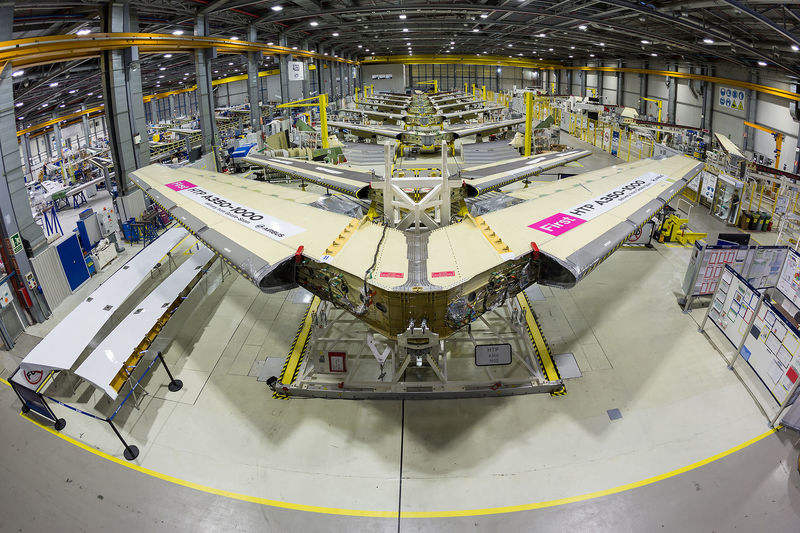Nine-month 2016 results reported by Airbus Group reflect the heavily back-loaded aircraft delivery schedule, the ongoing production ramp-up and the transition from current to new aircraft models.
Group revenues were stable at €42.7bn (9m 2015: €43.0bn). Revenues at Commercial Aircraft reflected higher A350 and A320 volumes but lower A330s and were supported by the more favourable US dollar environment. In all, 462 commercial aircraft were delivered (9m 2015: 446 aircraft). Despite increased deliveries of 258 (9m 2015: 237 units), Helicopters’ revenues declined 3%, reflecting a higher proportion of light helicopters and lower commercial flight hours in services. Airbus Defence and Space’s revenues declined 8%, reflecting the negative impact of the perimeter change from portfolio reshaping of around €–450m but were broadly stable on a comparable basis.
Group EBIT before one-off amounted to €2,415m (–14%). Commercial Aircraft’s EBIT before one-off was €1,838m (–17%), driven by the lower A330 rate, delivery profile, transition pricing on A330 and A320, and higher ramp-up costs, while R&D costs decreased.
Group order intake in the first nine months of 2016 was down 35%, at €73.2bn, with the total order book down slightly, at €986bn. Airbus received 380 net commercial aircraft orders (–37%). Airbus Helicopters net orders climbed 17%, to 211.
On the A350 programme, the company says good progress has been made in terms of risk management to bring down the level of outstanding work in the final assembly line. Difficulties remain in the supply chain with work continuing on recurring cost convergence during the ramp-up. On the A320neo, the company says that early teething problems with the Pratt & Whitney (P&W) engine are now largely over but P&W is facing some industrial ramp-up challenges which puts more pressure on the back-loading of the delivery profile.
On the A400M, the overall programme situation is still described as “challenging”. Commercial negotiations with OCCAR and the Nations have yet to take place with regard to the revised delivery schedule and its implications. The company says the outcome of these negotiations “cannot be reliably estimated”.
Airbus Group maintains its 2016 earnings and free cash flow guidance based on a constant perimeter. Airbus expects to deliver more than 650 aircraft and the commercial order book is expected to grow. Group EBIT before one-off is expected to remain stable.

